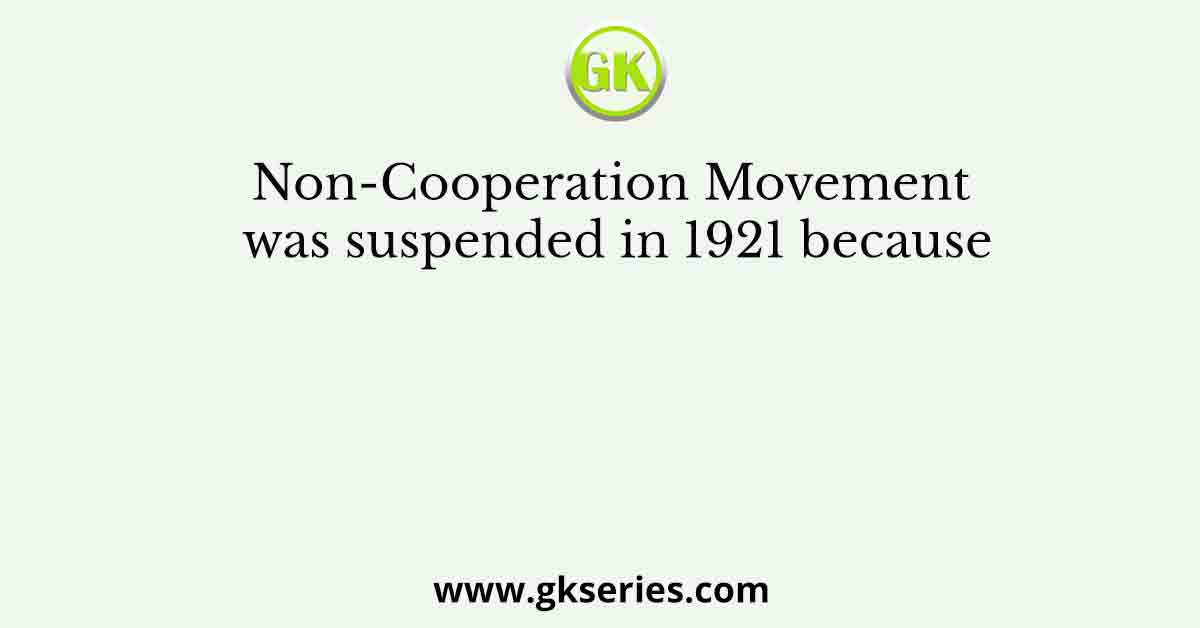
Q. Non-Cooperation Movement was suspended in 1921 because
(a) Violence broke out at Chauri Chaura
(b) Gandhiji was arrested for five years
(c) Government accepted the demands of Indian leaders
(d) People were not supporting this movement
Ans: (a) Violence broke out at Chauri Chaura
Explanation: The Non-Cooperation Movement was suspended in 1921 because (a) violence broke out at Chauri Chaura.
The Non-Cooperation Movement, launched by Mahatma Gandhi in 1920, aimed to boycott British institutions, government offices, courts, and educational institutions as a means of nonviolent protest against British colonial rule in India. The movement garnered widespread support and participation across the country.
However, the movement took a violent turn on February 5, 1922, in Chauri Chaura, a town in Uttar Pradesh, when a group of protesters clashed with the police. The situation escalated, and the protesters set a police station on fire, resulting in the death of several police officers.
Mahatma Gandhi, deeply saddened by the violence and realizing that the movement had lost its nonviolent character, took the decision to suspend the Non-Cooperation Movement. He believed that nonviolence was the essence of the movement, and the incident at Chauri Chaura went against its principles.
Therefore, option (a) violence broke out at Chauri Chaura is the correct reason why the Non-Cooperation Movement was suspended in 1921.





